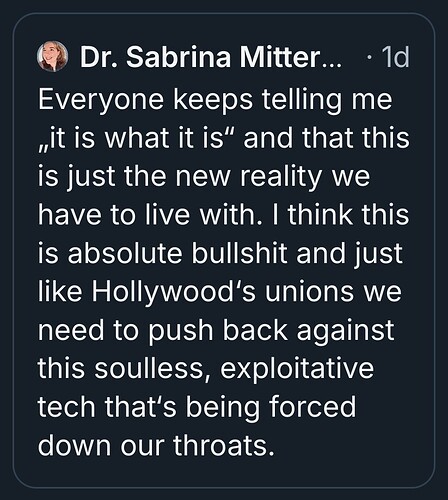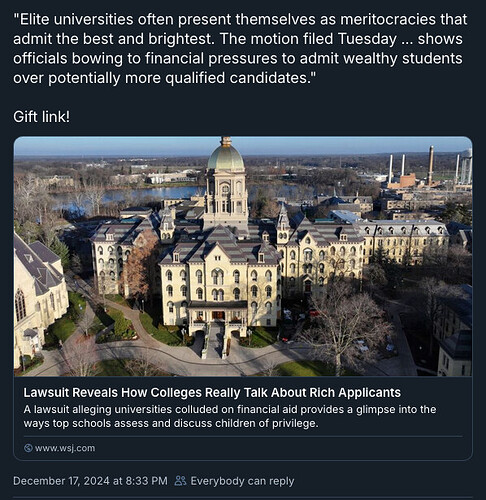From CHF730 ($830) to CHF2,190 per semester.
Students more likely to be expelled or suspended
Students who are part of marginalized communities, including students with disabilities and LGBTQ+ students, are shown to be disproportionately impacted by exclusionary school discipline policies.
“We know from research that Black children and adolescents are among those students most severely affected by expulsion and suspension,” Dr. Jain said. “When students are not in school, they are more likely to use recreational drugs, engage in fights, and carry a weapon, with potential for increased contact with the juvenile justice system. The school-to-prison pipeline places these children at increased risk of a cycle of incarceration.”
The AAP recommends an examination of these disparities as part of collaborative efforts among students, families, pediatric health care providers, educators and those involved in juvenile criminal justice reform to create alternatives to exclusionary discipline practices.
Among other findings. Expulsion is, as a tool of oppression, fairly effective. As a tool to increase safety or educational goals in school, a miserable failure. AAP is on it, but I suspect no one will care.
![]()
I wonder how long before all of us adjuncts are being replaced by AI, thanks to dipshits like this lit prof. ![]()
Why Quincy Jones should be prominently featured in US music education − his absence reflects how racial segregation still shapes American classroom
So what might a relevant American music curriculum look like?
I’d begin by introducing students to the first great American musician, Francis “Frank” Johnson. Born in 1792, Johnson was a prolific composer, violinist and band leader whose life and work are rarely studied in the U.S. He’s not to be confused with Frank Johnson, born in 1789, another notable early American violinist and brass ensemble leader.
I’d continue with other significant 19th-century figures such as New Orleans pianist Basile Barès, whose music filled American dance halls after the Civil War. Or Edmond Dédé, who studied and lived in Paris, France, for years before returning to his native New Orleans.
I’d focus their attention on the Broadway composer Will Marion Cook, who studied violin at Oberlin College as a teen and later with acclaimed virtuoso Joseph Joachim in Berlin, Germany. Or on the conductor, composer and librettist Harry Lawrence Freeman, whose 21 operas remain remarkably underexplored.
And I’d never let my syllabus skip the vocal music of Margaret Bonds, the symphonic works of Julia Perry, the atonal music of Undine Smith Moore or the music theories of Roland Wiggins.
Though I’ve only scratched the surface, all of these musicians were African American – and I didn’t even mention any blues, hip-hop, Motown, rock or R&B artists.
In my opinion, Black music and musical genres have had a greater impact on the course of American music than any other style or genre. For this reason, I believe universities and music schools should integrate this music into their music curricula – and feature it prominently and proudly.
From Francis Johnson to Quincy Jones, Black music exemplifies the musical greatness the U.S. is capable of producing, for Americans and for the world.
I did take a Jazz history class, which also touched on some blues and folk. It was a phenomenal class, i think i still have my extensive notes from it. Also i’ve taken a few art history classes and one of them covered the Harlem Renaissance but i feel that could’ve gone much further. Would not have minded taking more classes where black musicians and artists made an impact.
Speaking of Oberlin…I’ve had the great good fortune to perform a number of Nathaniel Dett compositions:
So I’d add him to the list.
Let me add to that a bit:
Dett earned several degrees at prestigious educational institutions, including Oberlin College (Bachelor of Music, 1908; Honourary Doctor of Music, 1926); Howard University (Honourary Doctor of Music, 1924); and the Eastman School of Music (Master of Music, 1932). Dett studied composition in Paris with the internationally renowned teacher Nadia Boulanger, and performed at Carnegie Hall and Boston Symphony Hall. Dett also performed for two American presidents, Herbert Hoover and Franklin D. Roosevelt.
Dett was also in demand as a teacher, and held positions at Lane College, Jackson Mississippi, 1908-1911; Hampton Institute, Virginia, 1913-1932; Samuel Houston College, Austin, TX, 1935-1937; and Bennett College, Greensboro, NC, 1937-1942. Nathaniel Dett was dedicated to the cause of Black music, winning the Bowdoin and Frances Boott prizes in 1920 from Harvard University for his paper The Emancipation of Negro Music, and for his motet, “Don’t Be Weary, Traveller.”
So, he WON the composition prizes at Harvard in 1920, but when they discovered he was Black, they refused to perform the piece that won (which was one of the prize stipulations). They finally performed it for the first time over a hundred years later:
If you go looking, you’ll notice that there’s no mention anywhere about that bit of history.
Shakespeare’s out, which will make qualifying for AP English status difficult.
So great to know that who I am is a ‘controversial issue’. I hope she wins her lawsuit.
dafuq?
I’m sure this will end well. AI is all-knowing and never makes shit up, right? And teachers, I mean, seriously, it’s not like they actually do anything…
OMFG, I cannot continue that. This is a disaster in motion and being allowed to continue. The kids will suffer. But I am sure there is profit in there somewhere.
The school’s energy supplier, for one.


